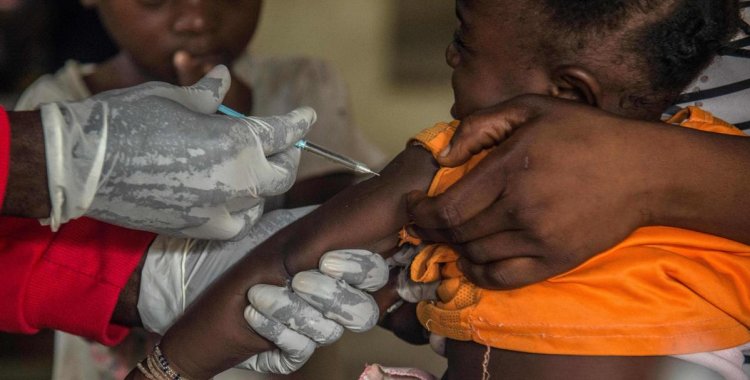The document from the World Health Organization (WHO) and the Centers for Disease Control and Prevention (CDC) indicates that measles cases increased by 18 percent in 2022 and deaths rose by 43 percent worldwide, compared to the year previous.
The estimated number of measles cases was nine million, of which 136,000 were fatal, affecting mainly children.
Last year, 37 countries recorded “major or disruptive” measles outbreaks (22 in 2021), of which 28 were in the WHO Africa region, six in the eastern Mediterranean, two in Southeast Asia and one in the European region.
"The increase in measles outbreaks and deaths is surprising, but unfortunately not unexpected, given the decline in vaccination rates we have seen in recent years," said CDC Division of Global Immunization Director John Vertefeuille.
It is a disease that can be prevented with two doses of the vaccine, but in 2022 around 33 million children were missing a dose of the measles vaccine, of which 22 million missed the first dose and another 11 million missed the first dose. second dose.
The overall coverage rate for the first dose of the vaccine (83 percent) and the second dose (74 percent) was still far below the 95 percent coverage with two doses, which is needed to protect communities from outbreaks.
Low-income countries, where the risk of death from measles is highest, continue to have the lowest vaccination rates, at just 66 percent, “a rate that shows no recovery in relation to the decline seen during the pandemic” of covid-19.
According to the two organizations, of the 22 million children who did not receive the first dose of the measles vaccine in 2022, more than half live in 10 countries: Angola, Brazil, Democratic Republic of Congo, Ethiopia, India, Indonesia, Madagascar, Nigeria , Pakistan and the Philippines.
“The lack of recovery in measles vaccination coverage in low-income countries after the pandemic is an alarm signal for action”, continues the WHO and the CDC.
For the WHO Director for Immunization, Vaccines and Biologicals, Kate O'Brien, "measles is called the virus of inequality for a good reason: it is the disease that will find and attack those who are not protected".
She added: "Children around the world have the right to be protected by the life-saving measles vaccine, no matter where they live."
For this reason, the WHO and CDC call on countries to find and vaccinate all children against measles and other vaccine-preventable diseases and encourage global stakeholders to help countries vaccinate their most vulnerable communities.







